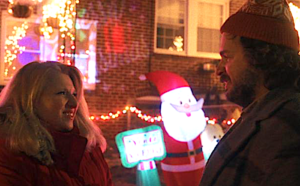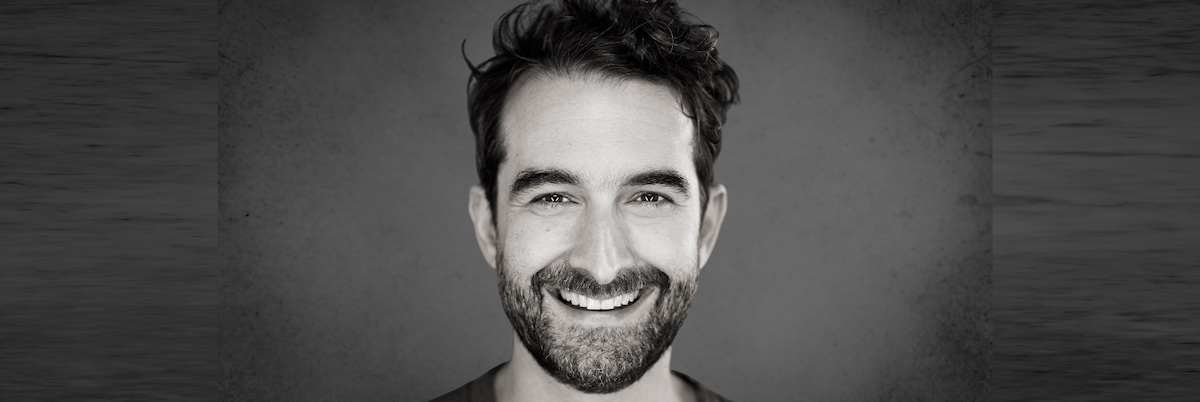Veteran independent filmmaker Jay Duplass will receive the “Spotlight Award” from the San Luis Obispo International Film Festival on Sunday, April 27 at the Fremont Theater. Tickets are available online.
That night the producer-director-writer-actor also will introduce his newest indie film, The Baltimorons. The comedy, which recently won the Narrative Spotlight Audience Award at the prestigious SXSW Film Festival in Austin, is the first movie that Duplass has written and directed in 14 years. It tells the story of a newly sober man whose Christmas Eve dental emergency leads to an unexpected romance. Michael Strassner, who co-wrote the screenplay with Duplass, stars along with Liz Larsen and Olivia Luccardi.
Duplass and his brother Mark have been a driving force in independent film for the last two decades, turning out critically-acclaimed movies such as The Puffy Chair, Cyrus, Safety Not Guaranteed, and Jeff, Who Lives at Home.
David Congalton: Congratulations on being honored by the San Luis Obispo International Film Festival. How does that make you feel?
Jay Duplass: It’s pretty wild. I grew up in the suburbs of New Orleans, loving movies and never really thinking that I would ever get the chance to make one, much less be awarded for one. I’m pinching myself.
DC: Yes, but you certainly must have an appreciation by now for the impact you and your brother Mark have had on independent film.
JD: We do love helping younger—and older—filmmakers come up and find their way because we did it in an entirely independent fashion. Sort of made it up as we went and we did it on a shoestring budget. We’ve become these “godfathers of independent cinema,” and the most surreal thing is that we’re in textbooks now. When you’re doing it, it doesn’t feel like you’re doing anything that means anything to anyone else. You just feel like you’re making a movie that is not going to bankrupt me more than when I was bankrupt in my 20s and 30s. So, I guess the fact that it’s memorialized in a textbook, well, I have to acknowledge that I’ve come to a point where, “Yes, this is being memorialized.”
DC: You’ve said that the movie that changed your life is the Coen Brothers’ comedy Raising Arizona.
JD: Yes, that was the movie. It was 1987. I was in my local movie theater. Fourteen years old. And that movie was the first time the awareness came into my mind that artists made this movie. Specific human beings made this movie. I can’t see them, but I know a lot about them. They have a sense of humor. They’re super smart. And that’s what got me thinking about the writing and directing of film. Prior to that, I was just a kid with movies being piped into my living room via cable.
DC: It’s interesting because Raising Arizona was made by a pair of brothers and now here are the two of you.
JD: What’s even wilder is that one of those brothers looks something like me and the other looks a little like Mark. But it was two brothers and it was a very original vision that probably would not have been brought forth had they not been siblings, had they not had that shared vision. Bold enough to bring that very unique, weird vision to the screen and create something new.

DC: You’re coming to the San Luis Obispo International Film Festival to accept an award. But you’re also coming to introduce your new film, The Baltimorons, the first movie you’ve written and directed in 14 years. Why did you take such a long break?
JD: Great question. All I wanted to do since Raising Arizona was be the Coen Brothers 2.0 with Mark. For several years, we were doing that—writing and directing movies together. But then my brother became a very famous actor and Mark realized that he liked producing more than writing and directing. We dabbled in TV. Then I started acting and it took me a long time to really remember that this is what I really love doing. Part of it was also me realizing that I had just turned 50 years old.
DC: The Baltimorons is a Christmas movie. What drew you to the idea of a holiday movie?
JD: You don’t really know these things until after. We shot the movie in the darkness of Baltimore—which can be a scary place. I love Baltimore, but it’s a dark place to have a misguided adventure. I just knew that having Christmas lights in the background might suggest that little glimmer of hope. I ended up using the jazzy music of Vince Guaraldi and I ended up making a live action version of a Charlie Brown movie with (actor) Michael Strassner as a modern day Charlie Brown. My brother gets the credit. He said, “You’ve got to shoot this movie at Christmas. There’s a lot of darkness there and the Christmas lights provide ‘the light.’”
DC: What’s the basic premise of the movie?
JD: A newly sober man needs emergency dental surgery on Christmas Eve and he gets it from an emergency dentist. They both get shut out of their respective family’s Christmases for various reasons and they basically have to overcome that. They spend Christmas Eve together trying to make lemons out of lemonade. It’s definitely a character piece. Two people trying to find their way and rediscover themselves.
DC: All against a holiday backdrop.
JD: Yes. Holidays bring out the best and worst of times. Everything seems to come to a fever pitch, so that’s what they’re off doing together.
DC: You’re coming up here for the film festival. What’s the impact of festivals like ours for filmmakers?
JD: It’s huge. I can’t underestimate the role of film festivals. Most independent films don’t get theatrical distribution anymore, so if you go to 15 or 20 festivals, you actually have a small theatrical distribution. Also, festivals are where you really enjoy celebrating and sharing your movie with fans from all over the world. You can also prime these audiences for spreading the word. That word of mouth leads to a healthy streaming life for these movies. But more than anything, I love convening with people who love and celebrate film and who want to protect it. And the people—other producers, cinematographers, actors—all of whom I’ve met at festivals and ended up working with. We’re all there, looking at stuff together. Film was the dominant American art form for 100 years. To be able to celebrate it in beautiful theaters like the Fremont, it’s just a dream. It really is.
DC: Speaking of Christmas movies, I know you’re aware of this controversy: Is Die Hard a Christmas movie?
JD: (laughing) Absolutely. 100 percent Christmas movie. In the Duplass tradition, Die Hard is the primary Christmas movie we watch. It’s all that action and all that broken glass. A lot of people like to keep their Christmas clean, but we all know that Christmas is a mess, so let’s just accept it.
Editor’s Note: This interview has been edited for length and clarity.
